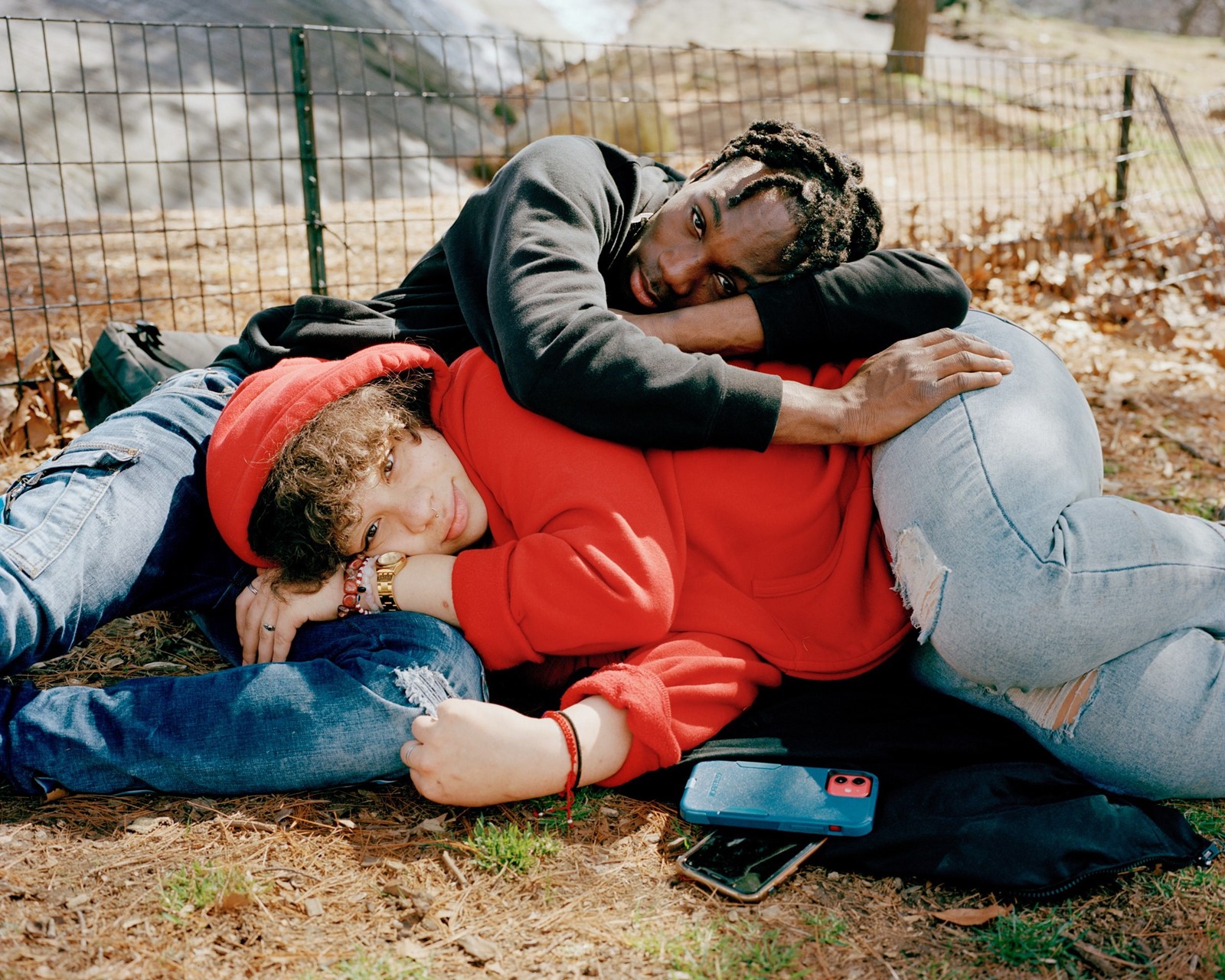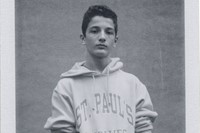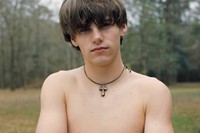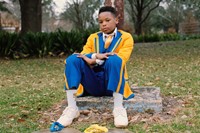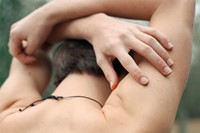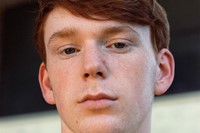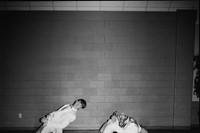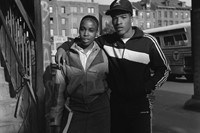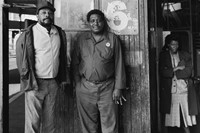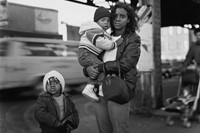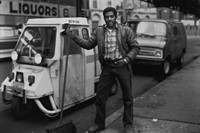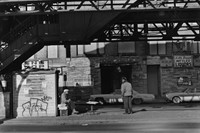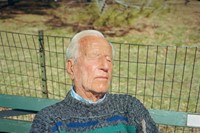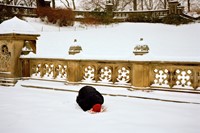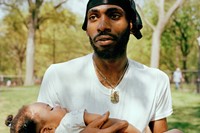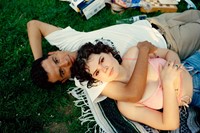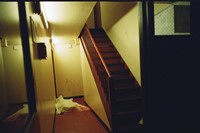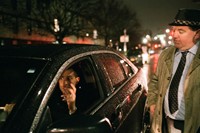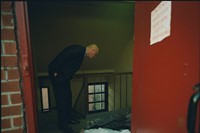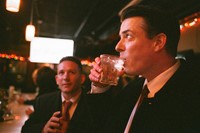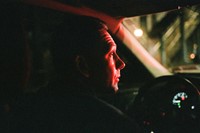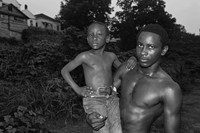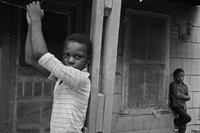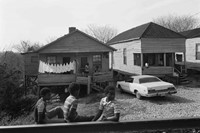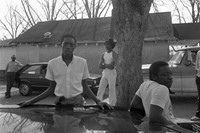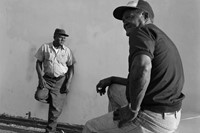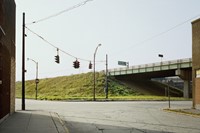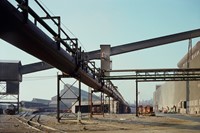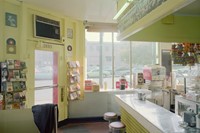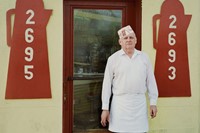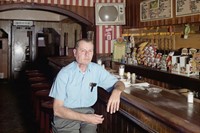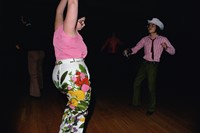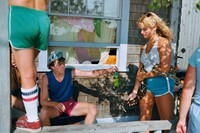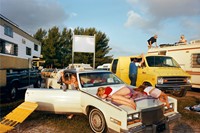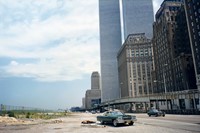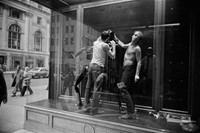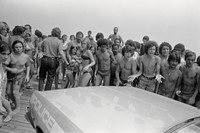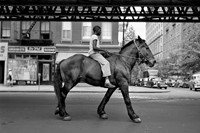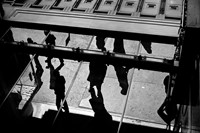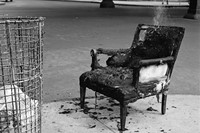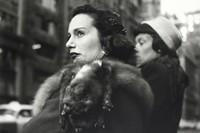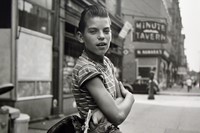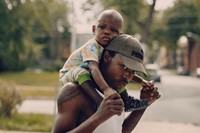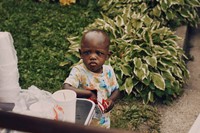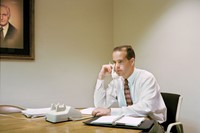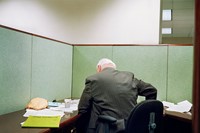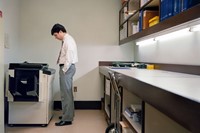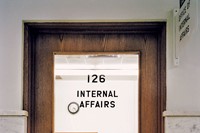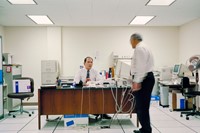Few countries are as naturally well-suited to exploration as America. Just under ten million square kilometres of land, linked by an endless network of roads, highways and interstates, it’s little wonder the country has produced some of the most remarkable photographic odysseys of the last century. From Robert Frank’s The Americans to Ed Ruscha’s Twentysix Gasoline Stations, William Eggleston’s Los Alamos and Garry Winogrand’s 1964 – exploring outwards has always been a means of looking inward.
In this US-themed round-up of our favourite photographs of the year, many of the selected artists are bound by a common theme of travel. Like the greats before them, the road offers discovery and fulfilment, a chance to survey the vastness and return with a richer understanding of their country than when they left. Spanning the early 1950s to the present day, these photographers are all concerned with the central question of American identity. Whether in high school marching bands, former steel towns, police departments or corporate offices, the answer can be found in the most unlikely places.
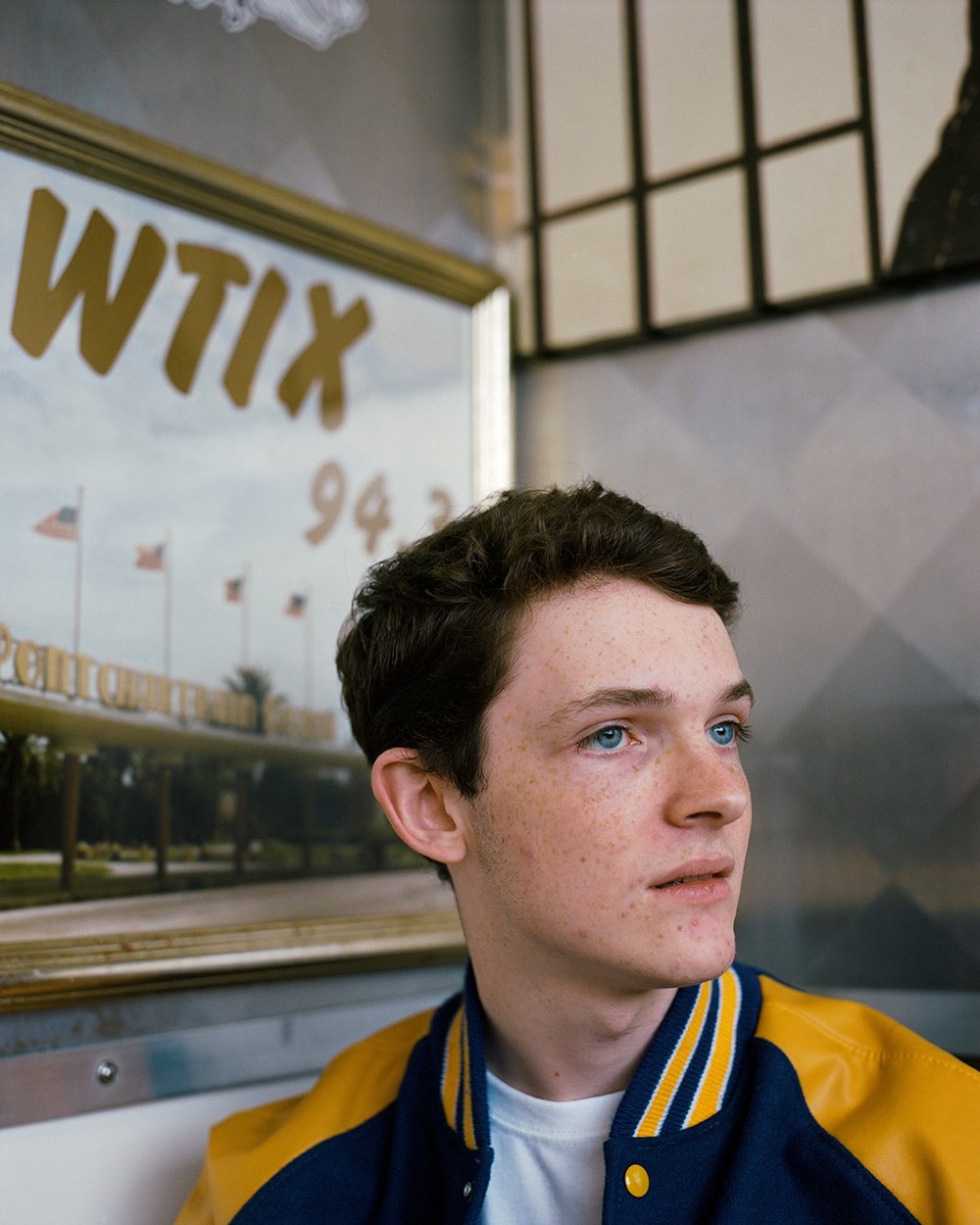
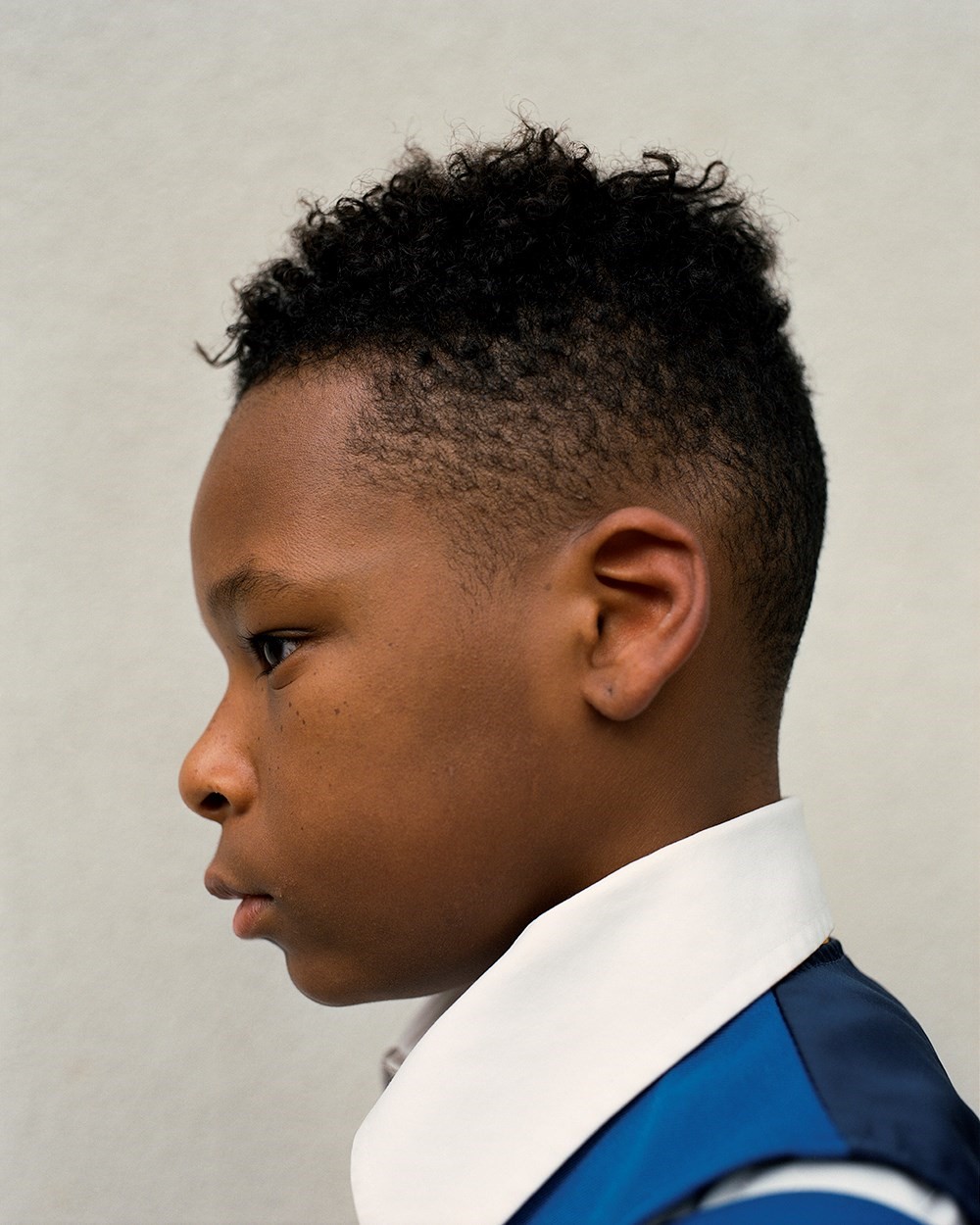
Marching Wolves by Fumi Nagasaka
Japanese-born, New York-based photographer Fumi Nagasaka has spent over 20 years studying the rites and rituals of adolescent America. For her most recent book, Marching Wolves, Nagasaka embedded herself within an all-boys New Orleans High School marching band, documenting their annual preparation for the biggest event of the year: Mardi Gras. By positioning herself in the middle of the band’s acrobatic performances, the work juxtaposes dynamic shots of youthful exuberance with quieter portraits that preserve this transitional moment into adulthood.
Read AnOther’s interview with Fumi Nagasaka here.
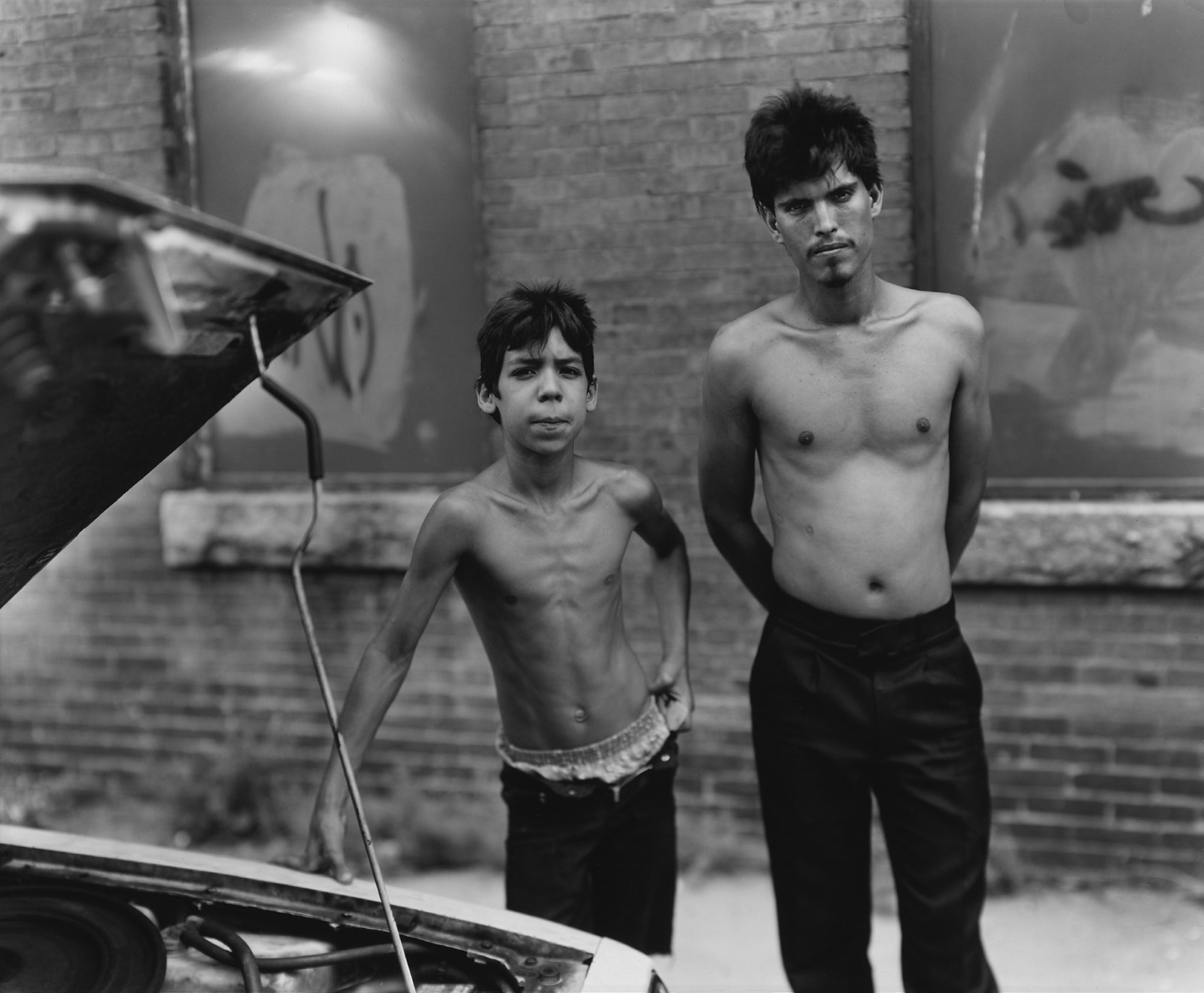
The Orange Line by Jack Leuders-Booth
When the last stretch of Boston’s elevated Orange Line was demolished in 1987, the city not only lost a precious remnant of its industrial past but an entire community that had flourished beneath its tracks. In his candid black-and-white portraits of this community for The Orange Line, shot two years before its demolition, Boston native Leuders-Booth investigates the influence of the urban environment over those who call it home. Echoes of the work’s brilliant conceptual focus can be seen in Gianfranco Rosi’s 2013 documentary Sacro GRA, about the residents of Rome’s main ring road, or in Alice Diop’s recent documentary We (Nous), which centres on the communities found along Paris’s RER rail line.
Read AnOther’s interview with Jack Leuders-Booth here.
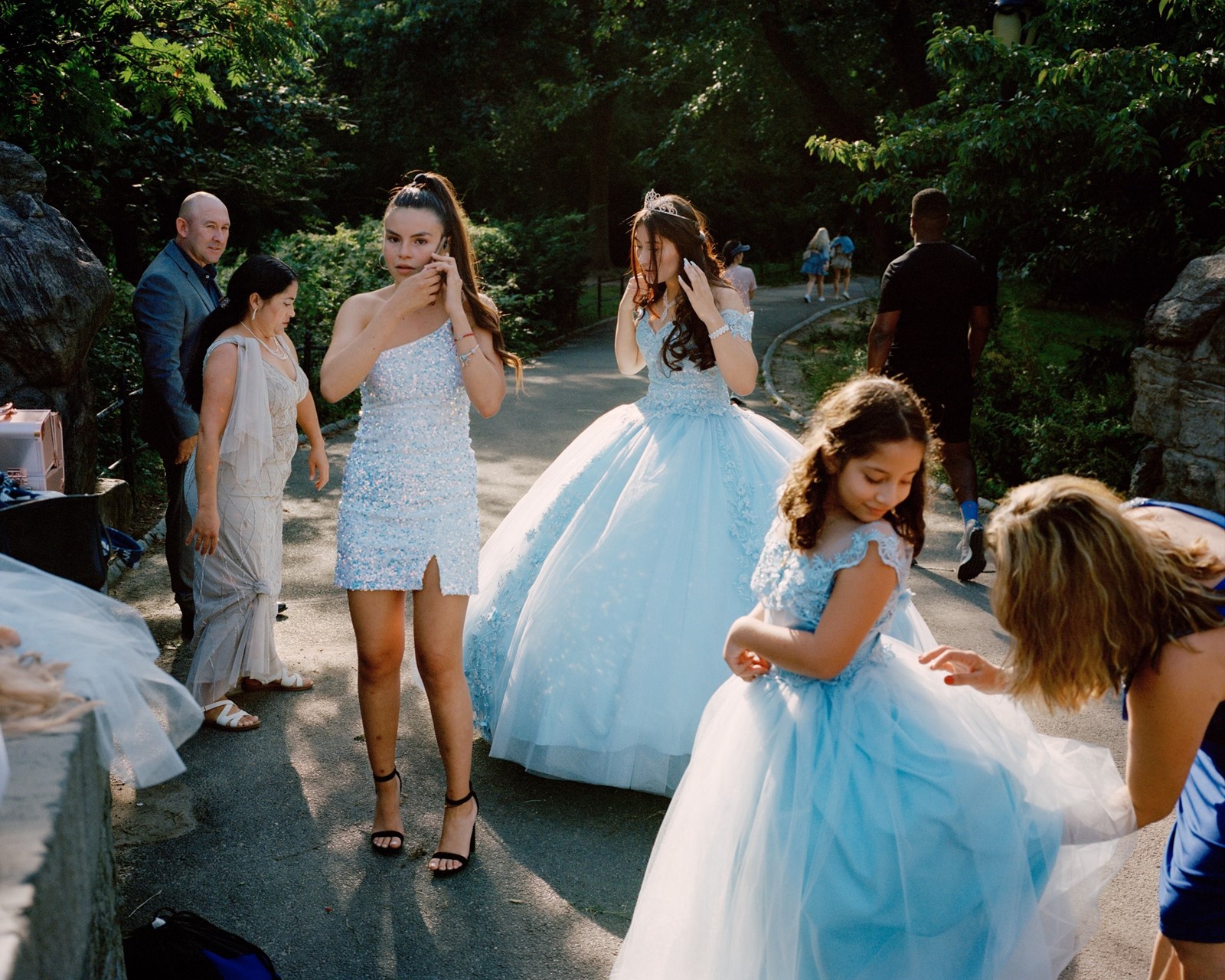
Common Place by Scott Rossi
It was the late, visionary landscape artist Christo who described Central Park as, “The most unusual and surreal place in New York City.” A similar sentiment is echoed by Scott Rossi in his book, Common Place, an investigation into Central Park’s enigmatic aura that arose from Rossi’s own private quest to understand New York after moving there in 2020. This vibrant series of intimate portraits reveals the park as a panacea, supporting a diverse array of needs and a slower pace of life.
Read AnOther’s interview with Scott Rossi here.
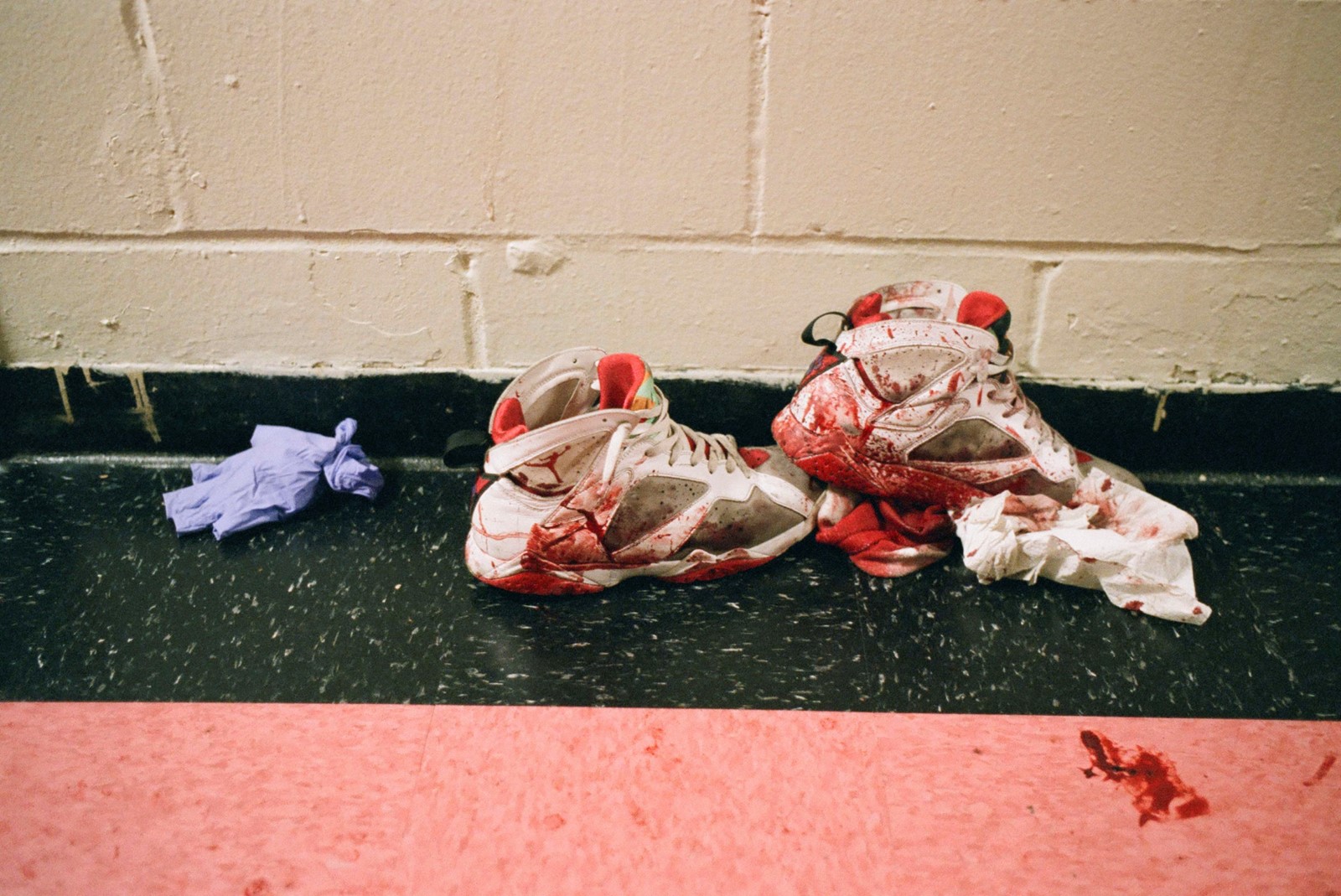
Homicide by Theo Wenner
Originally commissioned as a photo essay for Rolling Stone, Theo Wenner’s second monograph documents the photographer’s two and half years shadowing NYPD homicide detectives in one of the city’s most violent precincts. Having made his name in fashion, Wenner soon found himself living something close to a double life – even attending 911 call-outs directly from studio shoots. Despite the stark contrast in subject, Wenner maintains the same deft affinity for mood and character found in his editorial work – resulting in a unique body of work that shines a light on one of America’s most fabled institutions.
Read AnOther’s interview with Theo Wenner here.
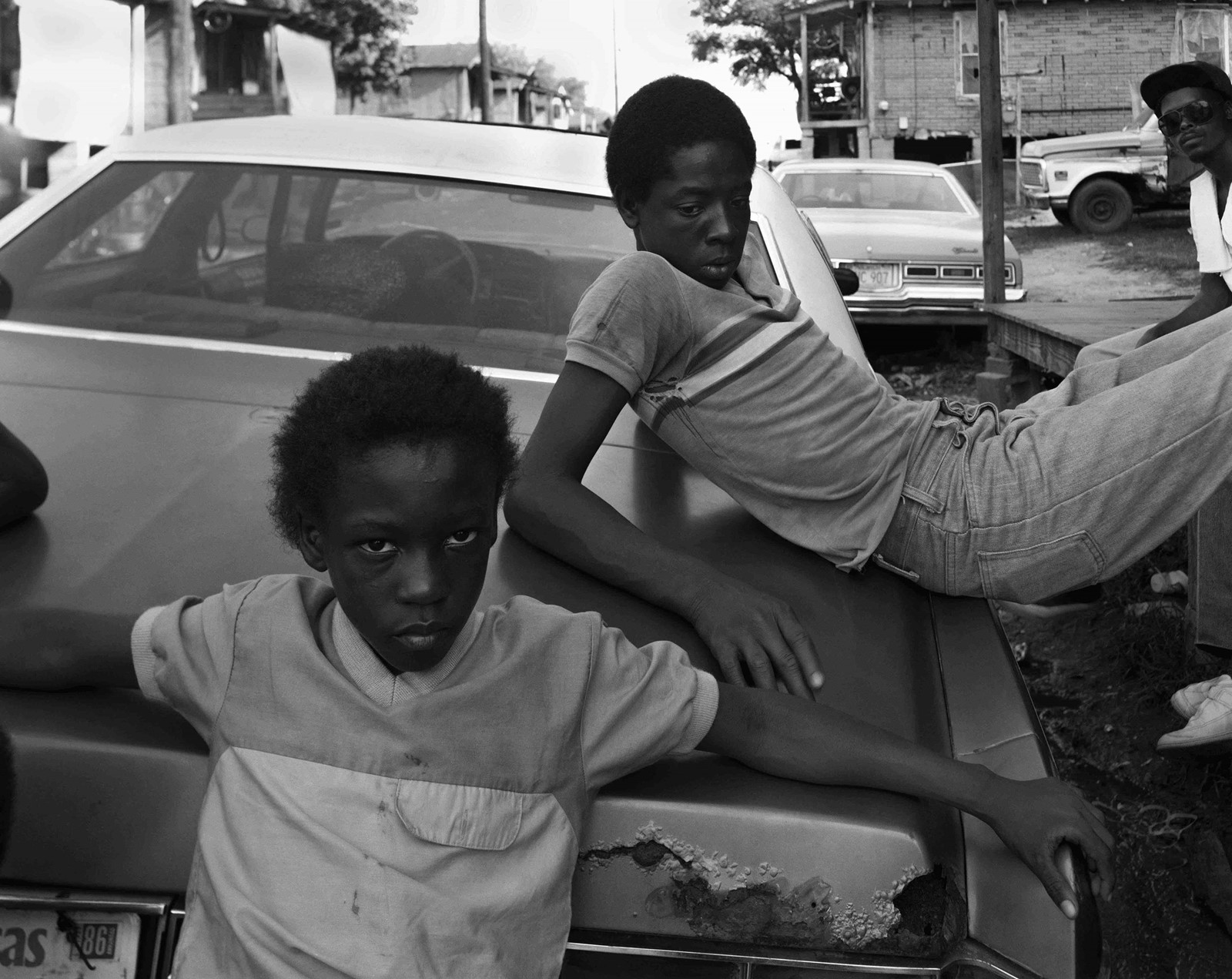
Baldwin Lee by Baldwin Lee
Taken over the course of successive road trips between in the 1980s, Baldwin Lee’s eponymous monograph presents a fascinating portrait of the American South. A student of Walker Evans at Yale School of Art, Lee channelled the intrepid spirit of his tutor for this series, beginning his trips in Tennessee before winding through Mississippi, Louisiana, Alabama, Florida and Georgia, taking deliberate care to avoid main roads in favour of sprawling back-streets. Though he never intended it, these trips developed into a startling survey of poverty and marginalisation in Black Southern communities, providing a real-world education for Lee that Yale never could.
Read AnOther’s interview with Baldwin Lee here.
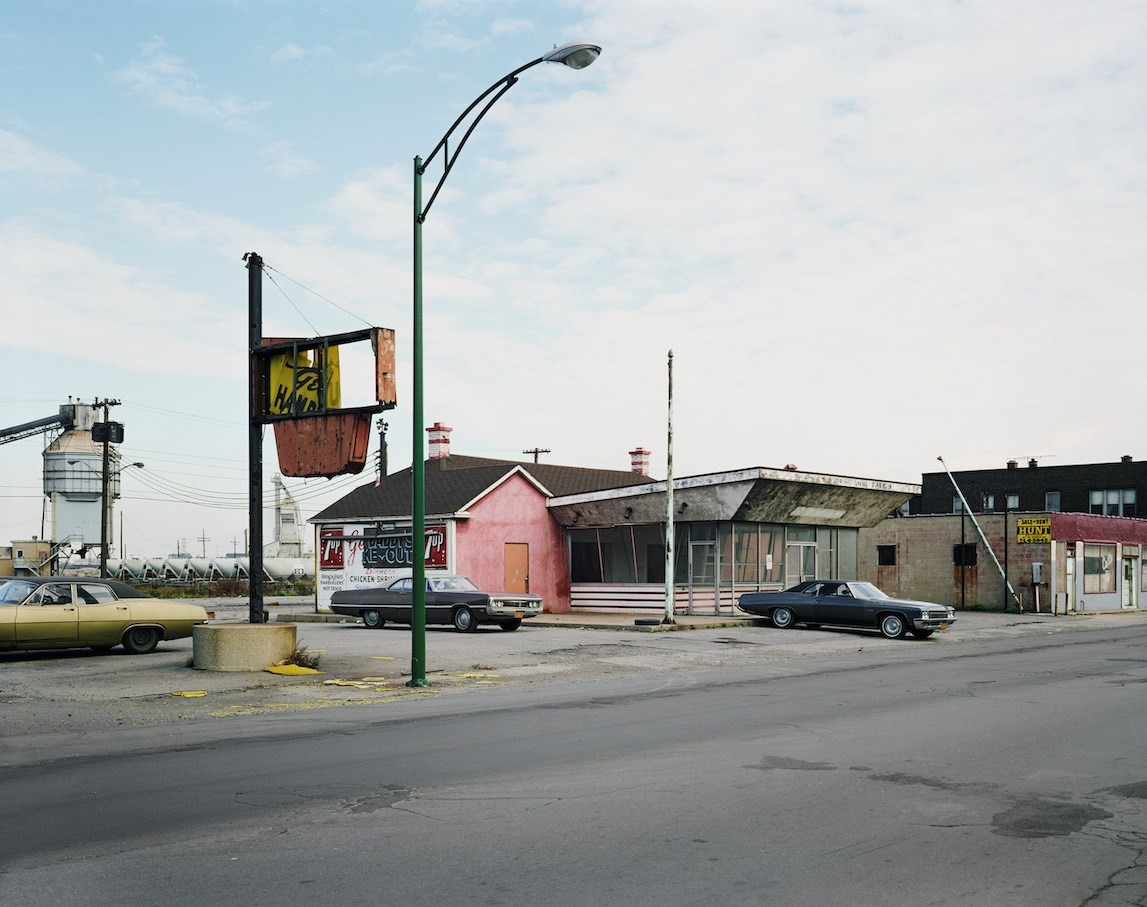
Hard Times Come to Steeltown by Stephen Shore
Five years after exhibiting his landmark American Surfaces series in 1972, Stephen Shore arrived in America’s Midwest tasked with documenting the region’s failing steel industry. Utilising the lessons he’d learned half a decade previous, Shore passed between once thriving towns in Ohio, Pennsylvania and New York that had been brought to their knees by the closing plants. Although the term ‘Rust Belt’ was only coined the following decade, Shore had unearthed a seismic demographic shift whose shockwaves would continue to be felt half a century later.
Read AnOther’s interview with Stephen Shore here.
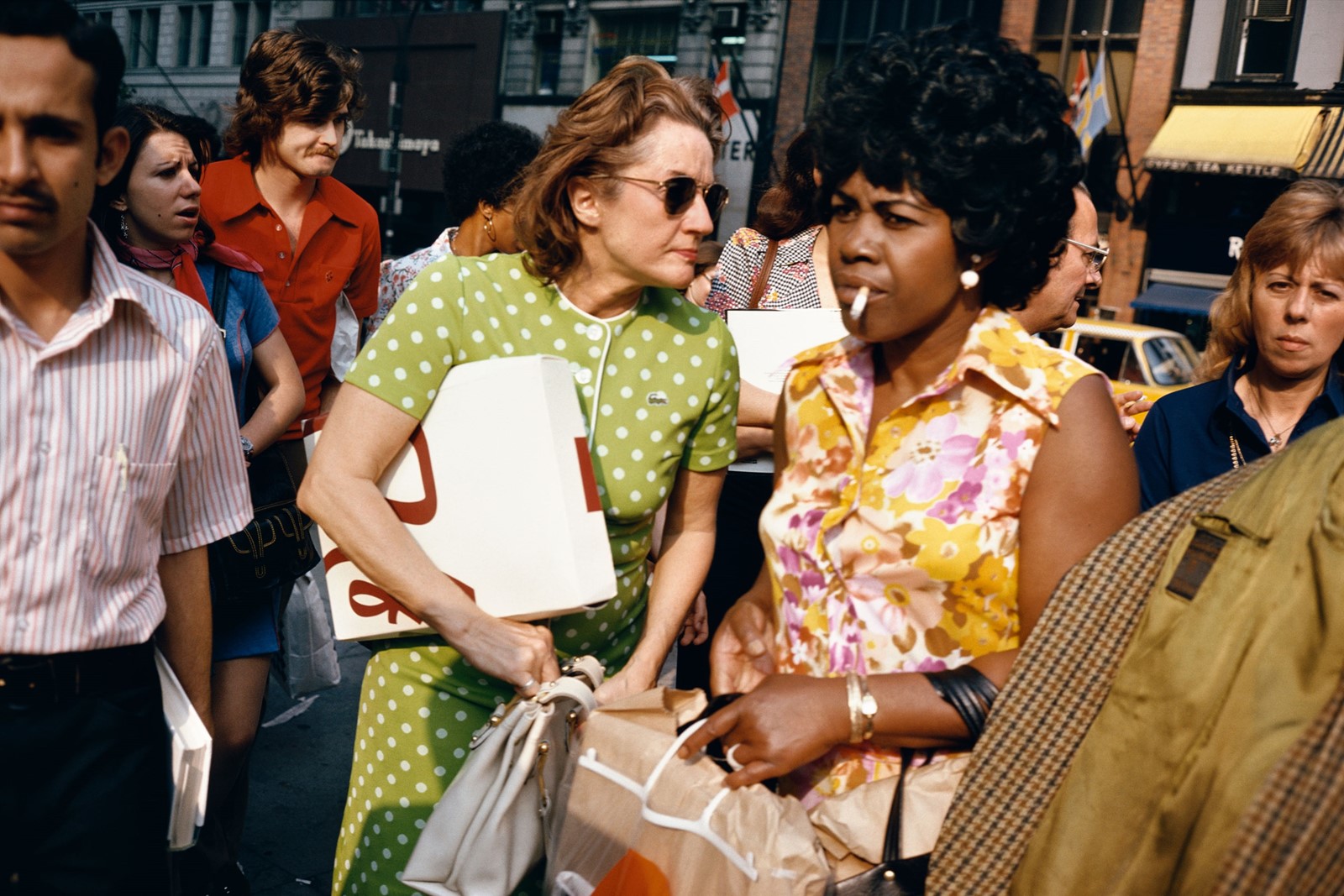
Recreation by Mitch Epstein
Expanding on the original version of his 2005 publication, this year US photographer Mitch Epstein presented 34 unseen photographs from his landmark series of a nation at leisure. Taken during the 1970s and 1980s, Recreation saw Epstein embark on an epic voyage across America’s cities, marking the beginning of a career-long fascination with the American psyche. In an age without camera phones, the people in his photographs appear blissfully unconcerned with their own image, lending each photograph an authentic and unguarded intimacy.
Read AnOther’s interview with Mitch Epstein here.
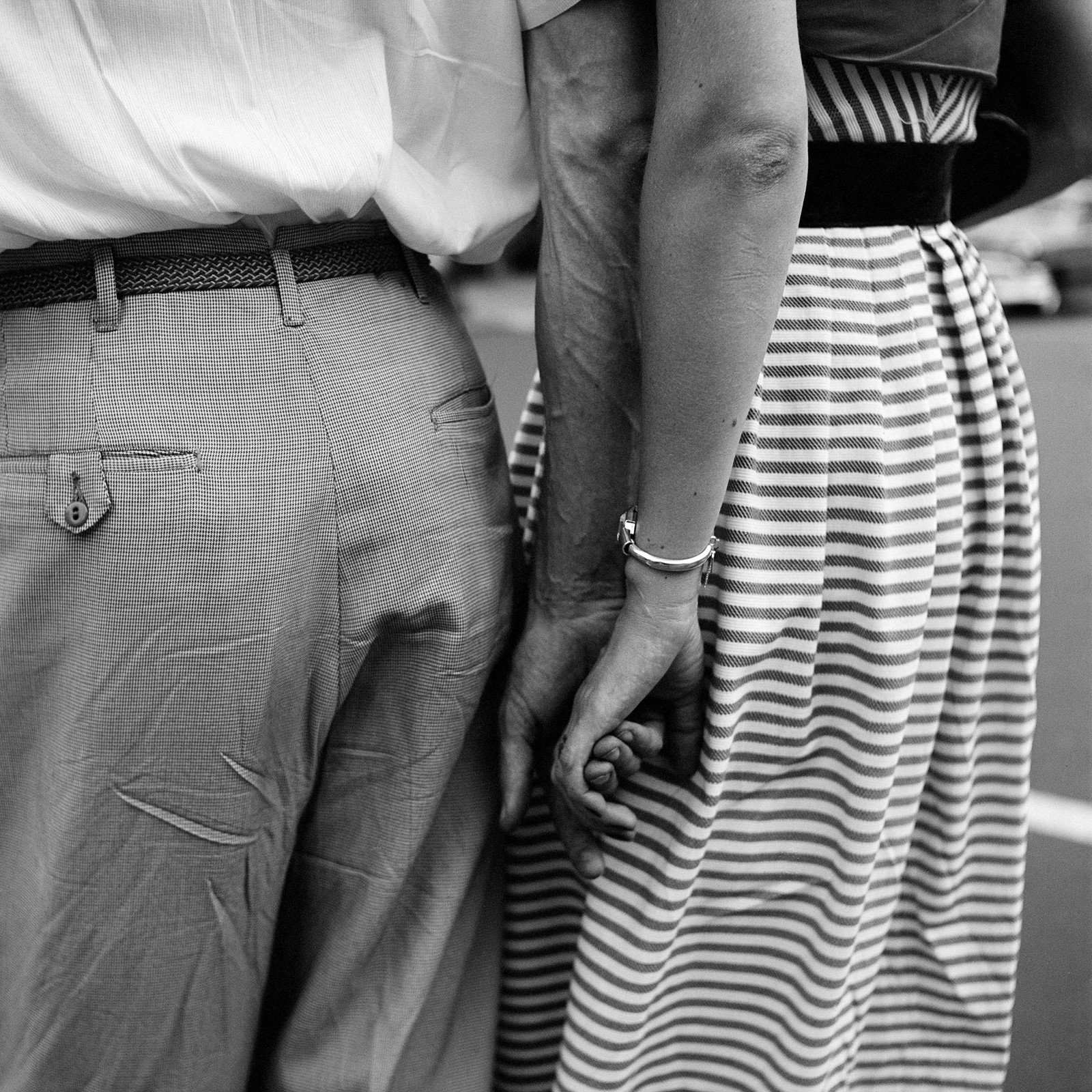
Anthology by Vivian Maier
For some 40 years, Vivian Maier worked as a nanny between Chicago and New York, privately amassing an enormous body of street photographs that remained hidden from the world until her death in 2009. Having only come to public attention following the spectacular recovery of her negatives in a Chicago storage unit, the full extent of Maier’s genius was always likely to be partially obscured by her scarcely believable life story. In the first UK exhibition of her work held earlier this year at MK Gallery however, Maier’s supreme talent took centre stage. With over 140 black and white photographs, the exhibition saw Maier recognised as a true great within the canon of 20th-century American photography.
Read AnOther’s feature on the exhibition here.
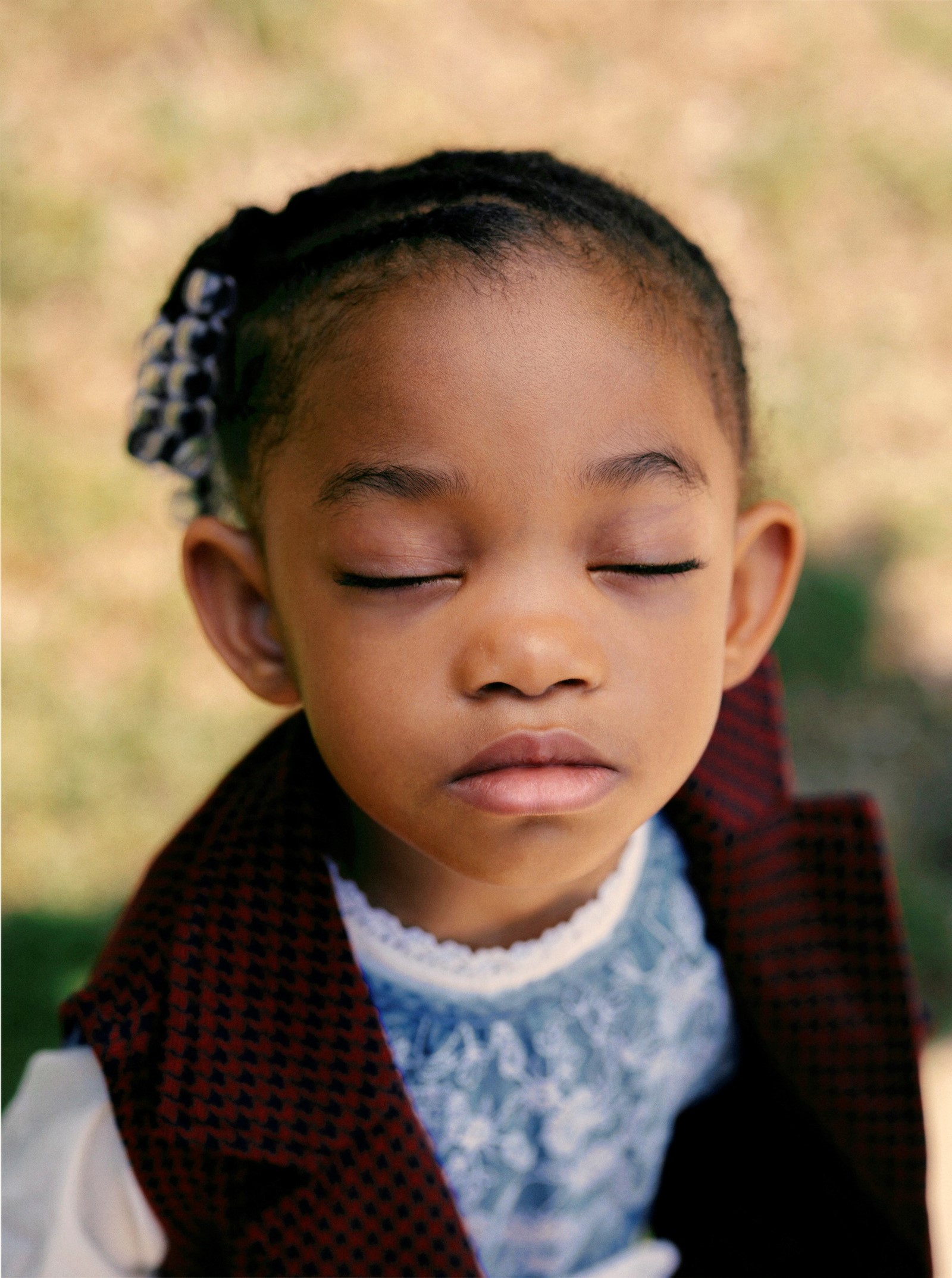
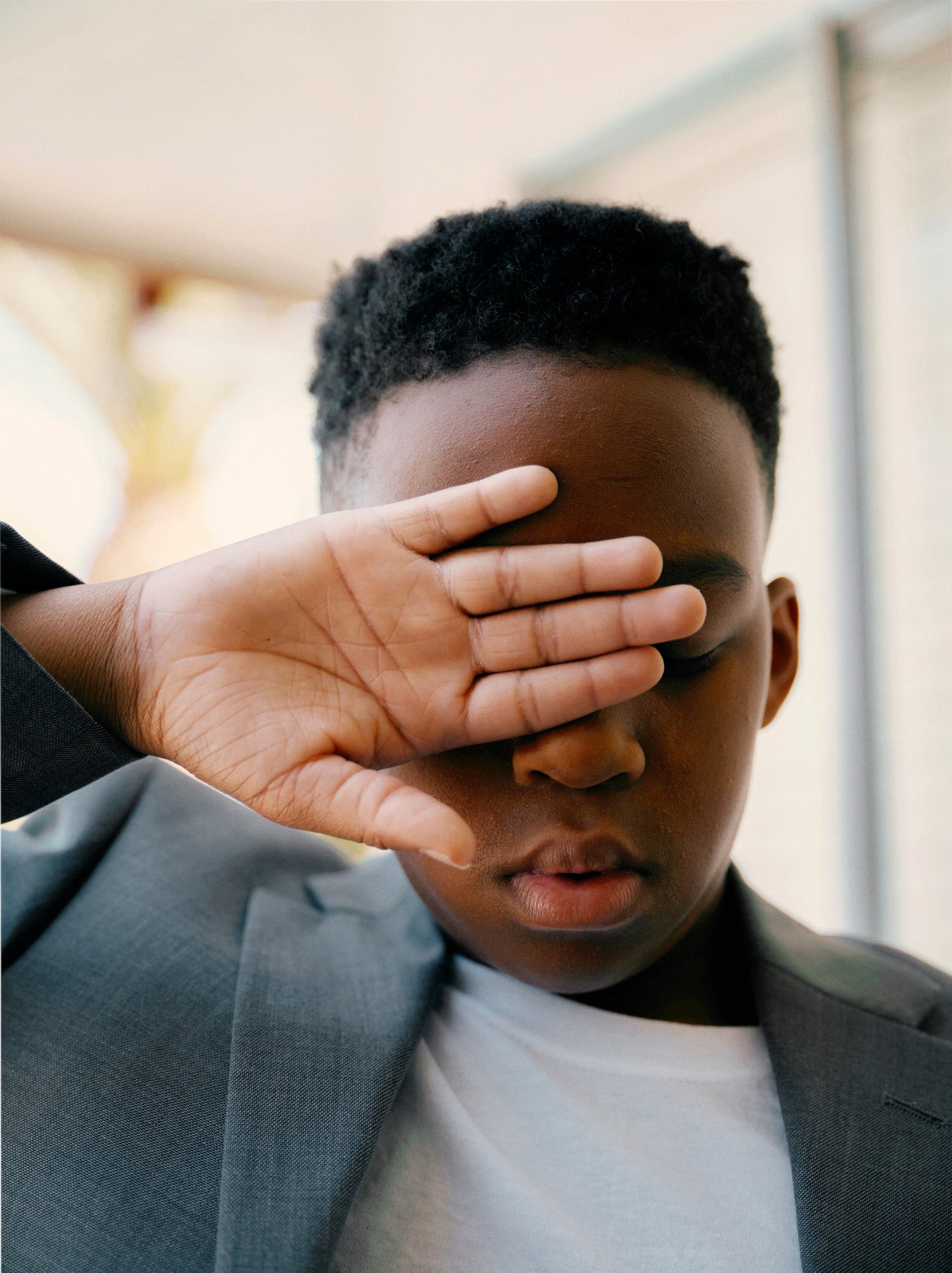
American Black Beauty Vol. 1 by Micaiah Carter
For his first solo show, Brooklyn-based Micaiah Carter delved into his personal history for an affirming celebration of Black identity in America. Combining his work in fashion editorial with family archives and new photographs made specifically for the show, this was a chance to rewrite mainstream narratives around Black representation while providing a visual legacy for future generations. These ambitions align with Carter’s wider aim of driving Black visibility in visual arts. In 2020 he founded See in Black, a coalition of photographers committed to strengthening Black participation in photography.
Read AnOther’s interview with Micaiah Carter here.
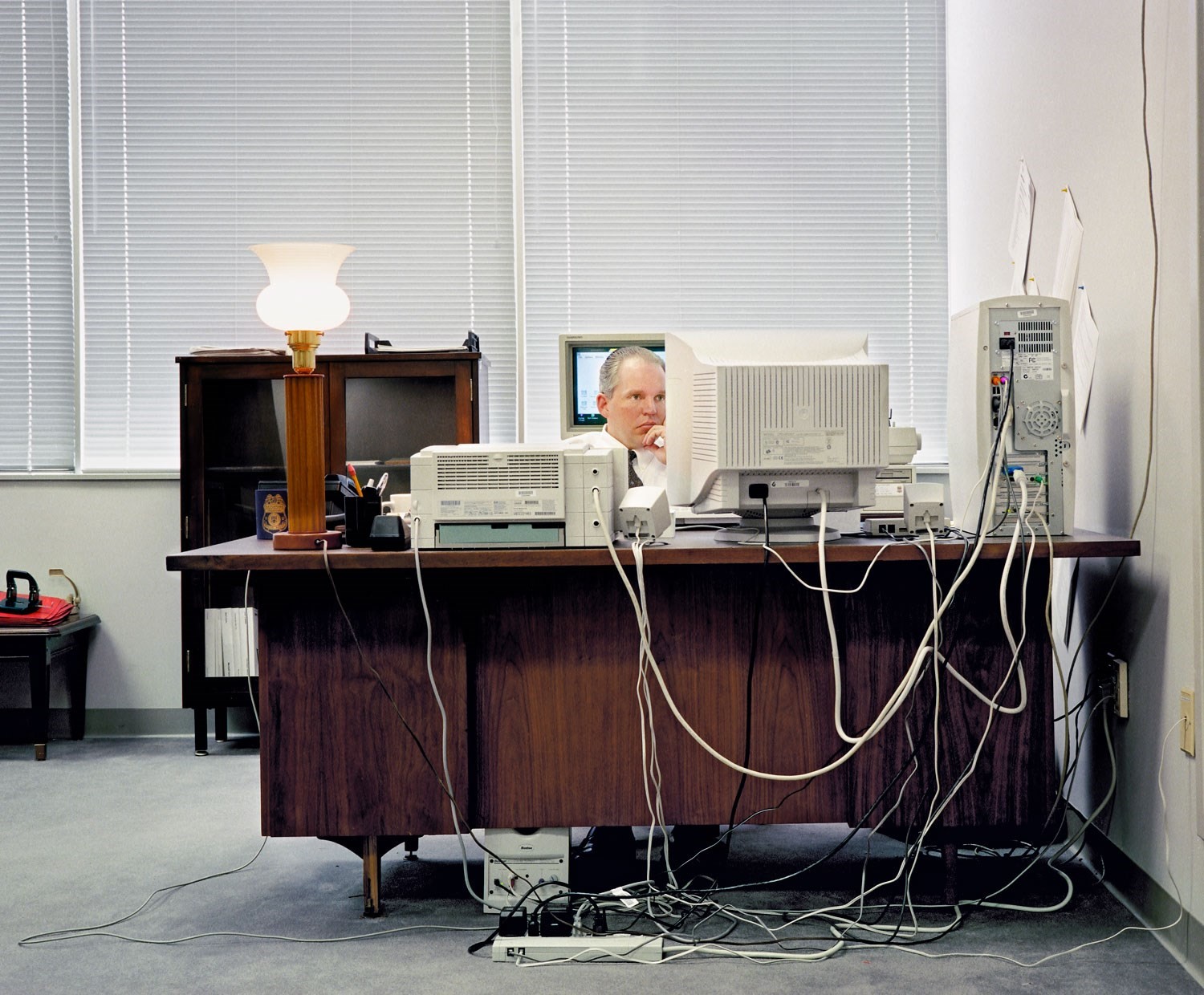
The Office by Steven Ahlgren
Few will have mourned the loss of office life during lockdown, and yet, Steven Ahlgren’s wonderfully observed book will have plenty questioning whether it wasn’t all bad after all. Inspired by frequent visits to Edward Hopper’s Office at Night (1940) painting at the Walker Art Center while working in a nearby bank, Ahlgren spent much of the 1990s and 2000s trying to capture the same evocative ambiguity in offices across the country. From insurance companies to law firms and accountants, Ahlgren takes the most mundane places and finds beauty in the little moments.
Read AnOther’s interview with Steven Ahlgren here.
